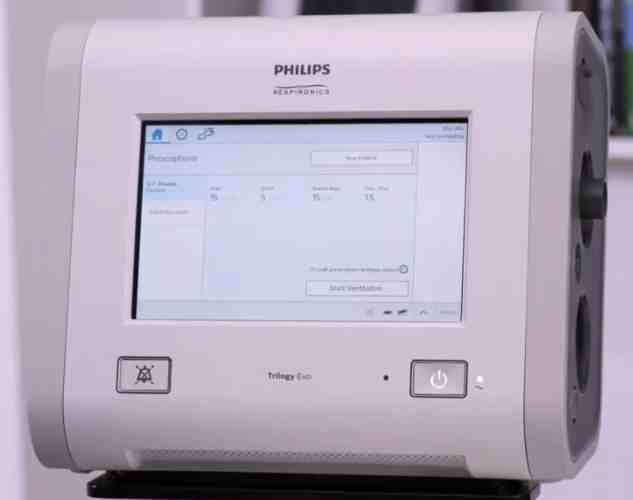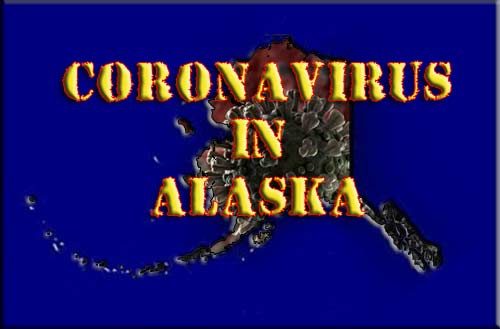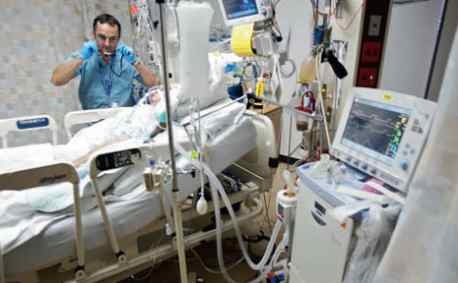ANCHORAGE — Emergency Order EO-03, which directs Anchorage residents and businesses to hunker down, went into effect Sunday night at 10 p.m.
The Mayor issued the Hunker Down order to prevent Anchorage hospitals from becoming overwhelmed and unable to treat those who need urgent medical care. Patients with severe cases of COVID-19 often require ventilators—machines that help people breathe—and treatment in intensive care units (ICUs). Hospitals have a limited number of ventilators, ICU beds, and staff. If demand for ventilators and ICU beds exceeds what hospitals have available, many, potentially thousands, of patients will not receive the life-saving treatment they need. Those patients would include anyone in need of intensive care, whether due to a severe case COVID-19, a heart attack, a car crash, or another medical emergency.
When left unchecked, this virus spreads exponentially. Some models show that without an order to hunker down, hospitals could become overwhelmed within weeks. The predictions of these models are borne out by what is happening in other communities that waited too long to prevent the spread of the virus.
“The evidence makes our responsibility clear,” said Mayor Ethan Berkowitz. “We must do everything we can to slow the spread of this lethal virus. Our first responders, our doctors, our neighbors – our community is counting on us to hunker down.”
The hunker down order mandates that that non-critical businesses close their premises, and that residents stay home as much as possible.
Non-critical businesses encompass any business that is not specifically exempted as a critical business. This includes (but is not limited to): shoe stores, hair salons and barber shops, nail salons, clothing stores, makeup stores, jewelry stores, car dealerships (service and parts may remain open), tattoo parlors, acupuncture, art studios, and sporting goods stores, in-home housekeeping services, babysitting (except to provide support for critical workers). This is in addition to the closure of gyms, movie theaters, indoor recreation centers, bowling alleys, and nightclubs that were closed by EO-01. Non-critical businesses must close their premises; it is not acceptable to simply transform to a curbside or delivery business as that still places too many workers and customers in harm’s way for a non-critical purpose.
[content id=”79272″]
The emergency order includes a list of critical businesses that can continue to operate while implementing social distancing techniques to the maximum extent possible—including switching to curbside or delivery service. The critical business list includes health care operations, grocery stores, convenience stores, maintenance and operations of critical infrastructure, first responders, criminal justice personnel, critical government functions, defense and national security-related operations, food cultivation, social services, journalism, gas stations, banks and other financial institutions, hardware stores, plumbers, electricians, mailing and shipping services, laundromats, educational institutions for the purpose of distance learning, restaurants (for takeout and delivery only), transportation services, hotels, childcare facilities (to serve workers in critical jobs only), and some legal and accounting services. For a full list, refer to the emergency order. These businesses should incorporate remote working whenever possible and adhere to CDC social distancing guidelines including maintaining six feet between people.
If not listed, a business may request an opinion from the Mayor that the business is critical by emailing covid-19-business@anchorageak.gov.
Residents must stay at home as much as possible. Residents can leave to work in critical jobs, to get food and important goods, for health care, and to recreate outside. Residents should maintain appropriate social distancing—six feet—from anyone outside of their household.
For more information, refer to our frequently asked questions document. Visit www.muni.org/covid-19 for updated information.
###







